Marc and Jennifer Lipschultz Precision Immunology Institute
Education/PhD Program
The Graduate School of Biomedical Sciences at Icahn School of Medicine is ranked among the very best in the world for academic training and the Precision Immunology Institute at Icahn School of Medicine at Mount Sinai (PrIISM) is dedicated to establishing a world-class immunology graduate program. The goal of the Immunology Training Area is to provide students interested in immunology with a rigorous and flexible program. Students will be given the individual intellectual and technical skills required to become outstanding scientists in the field of immunology.
Our Multidisciplinary Program
Students benefit from the multidisciplinary nature of our graduate program and take additional credits that could be in any area of interest to them and may include topics in microbiology, cancer, genetics, system biology, and genomic sciences among others. In addition, graduate students will also participate in an Immunology Journal Club, Work in Progress, and Seminar Series. Laboratory rotations and research training allows students to rotate and select any of the multiple laboratories that are currently working in immunology.
Prospective students are encouraged to contact Nicolas Vabret and Alice Kamphorst, Co-Directors of the Graduate Multidisciplinary Training Area in Immunology, with any questions regarding the Immunology graduate training program. A detailed description of the Precision Immunology Institute at Icahn School of Medicine at Mount Sinai (PrIISM) graduate program can be obtained here.
Predoctoral and Postdoctoral Research Training
- Graduate School of Biomedical Sciences (Graduate training is supported in part by NIH-funded T32 Grants.)
- MD-PhD Program (MSTP)
- Postdoctoral Training
Learn more about the Research in the Precision Immunology Institute at Icahn School of Medicine at Mount Sinai.
Supportive Climate: Report Misconduct
The Icahn School of Medicine at Mount Sinai is committed to providing an optimal environment for everyone’s success. Read more here.
To apply to our PhD Program, please go to this link and click on "Apply for Admissions" in the top right corner of the page.
For more information about our PhD Program, please contact Jeremiah Faith, PhD, at (212) 824-8953 or by email at jeremiah.faith@mssm.edu, or Alice Kamphorst, PhD at (212) 659-9305 or by email at alice.kamphorst@mssm.edu.
Based of continual feedback from Immunology students, we have designed our coursework to maximize time spent in the lab, to better take advantage of the numerous opportunities for translational research in our large research hospital, and to bring students up to date on the latest computationally intensive immunology technologies and analysis methods. In the first year, students complete foundational PhD-level courses in biomedical sciences and biostatistics, while pursuing laboratory rotations to find the right PhD mentor. In the second year, immunology students take Fundamentals in Immunology and select advanced immunology intensive short-courses.
Advanced Immunology Intensive Short-Courses: Clinical Focus
Given the Precision Immunology Institute’s expertise in translational immunology, the ready access to patient samples in this major medical center and the abundance of clinical faculty, these courses provide a vehicle for graduate students to build awareness of the possibilities of human research, the major problems in the field, and to relate to the patients that suffer from these conditions. The translational immunology bootcamps offered include Immunodeficiency and the International Course of Immunotherapy. The Immunotherapy course allows students to take a combination of four modules covering 1) mechanisms of action of immunomodulatory agents, 2) cancer immunotherapy, 3) immunotherapy of chronic inflammation, and 4) vaccine development in infectious disease. These changes allow our students to relate what they learn in the classroom, and from the lab bench, to real world clinical situations and to gain an appreciation of the impact of immunology training and identify under-studied clinical problems ripe for basic science research.
Advanced Immunology Intensive Short-Courses: Data Intensive Focus
With the advanced tools of the Human Immune Monitoring Center and the Genomics CoRE, there are numerous ways to generate rich immunology datasets. Developing skills to generate and analyze such large datasets is an essential skill for the future of immunology. “Data Intensive Immune Technology” provides an in-depth look at the latest multi-dimensional immunology data generation and analysis platforms. It is run in a seminar style with students presenting how an assay works, how data are processed, cost per sample, and other details to increase awareness of immune technologies and the hurdles to implementation. The topics included next-generation sequencing, antibody/TCR sequencing, epitope determination by antigen display, single-cell technologies, large-scale functional screens, CRISPR, and lineage tracing.
Fundamentals of Immunology
Maria Curotto de Lafaille, PhD is the director of the Fundamentals of Immunology course. The immune system plays an essential role in defense against pathogens and malignancies. This course will offer the fundamental concepts on the composition and function of the innate and adaptive immune systems. The goal is to provide students with the necessary knowledge tools for their training in Immunology and related research fields. Main basic topics addressed are the myeloid and NK cell linages, how T and B lymphocytes receptors are assembled, the development of immune responses and the generation of immunological memory. The course also includes lectures on immunity in inflammatory diseases and cancer, and special topics on frontier immune research areas and technologies.
Learning to critically evaluate the immunology literature, hearing the latest advances from world leaders, learning presentation skills, and moderator skills are essential scientific training.
Seminar Series
Speakers of international renown are invited and spend one to two days meeting with both faculty and trainees. This is an excellent opportunity for trainees to directly engage some of the major figures in Immunology and to present their work and get direct feedback. Students interact with the guest speaker either at lunch, at an informal mid-afternoon get together or even over dinner. There is also a student organized seminar speaker program whereby a small committee of students nominates potential seminar speakers. Each nomination is discussed and debated amongst the students who then vote on the speaker to invite. This student organized seminar speaker visits in one of our seminar speaker slots but their visit is entirely planned by the students.
Work in Progress Series
On a weekly basis, we have an institute-wide work in progress series. Here, trainees (graduate students and post-docs, 2 per session) present their latest results in a cohesive fashion and receive feedback from the group at large. This seminar gives trainees an opportunity to gather his/her data from a period of time (usually 6-12 months) and attempt to coordinate results and get a better feel for his/her research direction. Two students serve as the moderator for each Work in Progress seminar to improve moderation skills and trainee interactions.
Journal Club
In the Immunology Journal Club, articles are selected from high quality journals and should reflect current areas of controversy or new paradigms. Questions and comments on the paper from all the students are posted online prior to the journal club, which are then further discussed in a live and interactive session. Given the broad interests of the faculty, these journal clubs are a valuable learning experience for both faculty and trainees.
Preprint Club
The Preprint Club is a multi-institutional Journal Club, co-founded by the Mount Sinai in NYC and Oxford university in the UK, that is focused on the review and highlight of immunology preprints by Early Career Researchers (ECR: PhD students and Post-Docs). We meet online on a weekly basis (1h/week) to present 2 recent preprints that are discussed and evaluated. The presenters are then invited to write a public review of the preprint that is posted on our website (www.preprintclub.com). In addition, every month, 1 or 2 preprints that have been deemed promising / high quality are the subject of a short highlight authored by the student/postdoc who presented it and a faculty in the journal Nature Review Immunology.

Michelle Adler
Mentor: Dusan Bogunovic and Jean Lim
Thesis project: TBD
Contact: michelle.adler@icahn.mssm.edu
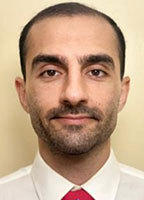
Nima Assad
Mentor: Miriam Merad
Thesis project: Profiling developmental stages of tertiary lymphoid structures in chronic inflammation
Contact: nima.assad@icahn.mssm.edu

Andras Bimbo-Szuhai
Mentor: Saurabh Mehandru
Thesis Project: TBD
Contact: andras.bimbo-szuhai@icahn.mssm.edu

Eleanor Burgess
Mentor: Michael Schotsaert
Thesis Project: TBD
Contact: eleanor.burgess@icahn.mssm.edu
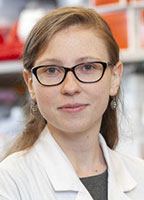
Yonina Bykov
Mentor: Adolfo Garcia-Sastre
Thesis project: Understanding the mechanisms of the anti-tumor activity of novel oncolytic viruses and designing recombinant viruses as a treatment modality.
Contact: yonina.bykov@icahn.mssm.edu

Ziche Chen (PhD BSR)
Mentor: Filip Swirski
Thesis Project: Stress-Specific Neuronal Ensembles Regulating Physiological and Immune Responses
Contact: ziche.chen@icahn.mssm.edu
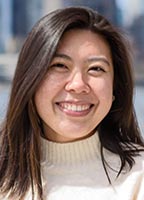
Theresa Chu
Mentor: Nina Bhardwaj
Thesis project: Studying neoantigen reactive T cells in Murine melanoma (B16F10) model
Contact: theresa.chu@icahn.mssm.edu

Abigail Chutnik
Mentor: Samir Parekh
Thesis Project: TBD
Contact: abigail.chutnik@icahn.mssm.edu

Aonkon, Dey
Mentor: TBD
Thesis Project: TBD
Contact: aonkon.dey@icahn.mssm.edu

Xin Fang
Mentor: Dmitriy Zamarin
Thesis Project: TBD
Contact: xin.fang@icahn.mssm.edu

Qingying Feng
Mentor: Dr. Shen
Thesis Project: TBD
Contact: qingying.feng@icahn.mssm.edu

Jeremy Fischer
Mentor: Jeremiah Faith
Thesis Project: TBD
Contact: jeremy.fischer@icahn.mssm.edu

Xinying Ge
Mentor: Nina Bhardwaj
Thesis Project: TBD
Contact: xinying.ge@icahn.mssm.edu

Rachel Geltman
Mentor: Dusan Bogunovic and Brad Rosenberg
Thesis project: Antiviral drug development inspired by innate immunity
Contact: rachel.geltman@icahn.mssm.edu

Matteo Gianeselli
Mentor: Filip Swirski
Thesis project: Neural control of immunity and inflammation
Contact: matteo.gianeselli@icahn.mssm.edu

Abbey Glick
Mentor: Filip Swirski
Thesis project: Investigating the role of type I interferons in macrophage ontogeny
Contact: abigail.glick@icahn.mssm.edu

Nicole Hirsh
Mentor: Joshua Brody
Thesis Project: TBD
Contact: nicole.hirsh@icahn.mssm.edu
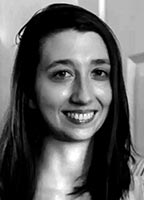
Aislinn Keane
Mentor: Talia Swartz
Thesis project: Nicotine and the NLRP3 Inflammasome in HIV-1-Associated CNS Inflammation
Contact: aislinn.keane@icahn.mssm.edu
Annie Khamhoung
Mentor: Cameron McAlpine
Thesis project: The immune system and neurodegenerative disease
Contact: annie.khamhoung@icahn.mssm.edu

Jeanne Kim
Mentor: Alison Goate
Thesis Project: Role of Microglial MEF2C in Alzheimer's Disease and Microglial Development
Contact: jeanne.kim@icahn.mssm.edu

Manan Krishnamurthy
Mentor: Daniel Puleston/Miriam Merad
Thesis Project: Metabolic Characterization of Tissue Resident Macrophages
Contact: manan.krishnamurthy@icahn.mssm.edu

Jesse Mangold
Mentor: Talia Swartz
Thesis project: Probing the Role of Secondary Lymphoid Tissue Architecture in HIV-1 Associated NLRP3 Inflammasome Signaling
jesse.mangold@icahn.mssm.edu

Bryan Marr
Mentor: Amir Horowitz
Thesis Project: TBD
Contact: bryan.marr@icahn.mssm.edu

Gabriel Nascimento de Souza Santos
Mentor: Dmitriy Zamarin
Thesis Project: TBD
Contact: gabriel.nascimentodesouzasantos@icahn.mssm.edu

Trung Nguyen
Mentor: Brian Brown and Dmitriy Zamarin
Thesis project: TBD
Contact: trung.nguyen@icahn.mssm.edu

Ezekiel Olumuyide
Mentor: Robert Samstein
Thesis project: HLA genetics shapes cancer Immunosurveillance
Contact: ezekiel.olumuyide@icahn.mssm.edu

Ananya Parthasarathy
Mentor: Karen Edelblum
Thesis Project: TBD
Contact: ananya.parthasarathy@icahn.mssm.edu

Giang Pham
Mentor: Daniel Puleston
Thesis project: Genetic mutations drive HCC metabolism
Contact: giang.pham@icahn.mssm.edu

Meredith Ramba
Mentor: Dusan Bogunovic and Brad Rosenberg
Thesis project: Characterizing B Cell Contributions to Down Syndrome and Autoimmunity
Contact: meredith.ramba@icahn.mssm.edu

Vishal Rao
Mentor: Camilla Coelho
Thesis Project: TBD
Contact: vishal.rao@icahn.mssm.edu

Frederika Rentzeperis
Mentor: Miriam Merad
Thesis project: Neuron-macrophage interactions in colorectal cancer and aging
Contact: frederika.rentzeperis@icahn.mssm.edu
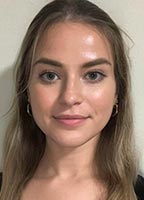
Laura Rosenberg
Mentors: Nicolas Vabret
Thesis project: Co-opting the viral mimicry response to counteract tumor chemoresistance
Contact: laura.rosenberg@icahn.mssm.edu

Ashley Richardson
Mentors: Samira Asgari
Thesis project: Analysis of Human Leukocyte Antigen (HLA) diversity and association with infectious and immune-mediated diseases
Contact: ashley.richardson@icahn.mssm.edu

Aabir Sanyal
Mentor: Louai Labanieh
Thesis Project: TBD
Contact: aabir.sanyal@icahn.mssm.edu

Maximilian Schaefer
Mentor: Miriam Merad
Thesis Project: TBD
Contact: maximilian.schaefer@icahn.mssm.edu

Gerrit Schmidt
Mentor: Jeremiah Faith
Thesis Project: TBD
Contact: gerrit.schmidt@icahn.mssm.edu

Bhavya Singh
Mentor: Brian Brown and Nicolas Vabret
Thesis project: Investigating the spatial dynamics of immune cells and intracellular innate immune regulators in Pancreatic Ductal Adenocarcinoma (PDAC)
Contact: bhavya.singh@icahn.mssm.edu

Xenia Sofianou
Mentor: TBD
Thesis Project: TBD
Contact: xenia.sofianou@icahn.mssm.edu

Brian Soong
Mentor: Miriam Merad and Sai Ma
Thesis project: TBD
Contact: brian.soong@icahn.mssm.edu
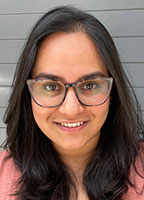
Prerna Suri
Mentor: Robert Samstein
Thesis project: Understanding the influence of DNA damage repair pathways on Immunotherapy outcomes
Contact: prerna.suri@icahn.mssm.edu
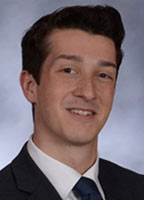
Alexander Tepper
Mentor: Brian Brown
Thesis project: Investigating lung tumor composition and immunity using Perturb-Map and t-CyCIF
Contact: alexander.tepper@icahn.mssm.edu
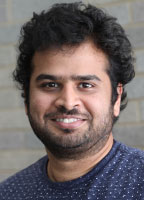
Abishek Balachandra Vaidya
Mentor: Alice Kamphorst
Thesis project: Dissecting CD4 help programs in the differentiation of PD-1+ CD8 T Cells
Contact: abishekbalachandra.vaidya@icahn.mssm.edu

Izabella Valdez
Mentor: Tingting Jiang
Thesis project: Engineering novel gene editing tools for CFTR correction
Contact: izabella.valdez@icahn.mssm.edu

Jared Weiler
Mentor: Jeremiah Faith
Thesis Project: TBD
Contact: jared.weiler@icahn.mssm.edu

Sandhya Yadav
Mentor: Dmitriy Zamarin
Thesis Project: TBD
Contact: sandhya.yadav@icahn.mssm.edu

Neil Yang
Mentor: Daniel Puleston
Thesis Project: TBD
Contact: neil.yang@icahn.mssm.edu

Yifan Zhao (PhD BSR)
Mentor: Robert Samstein
Thesis Project: TBD
Contact: yifan.zhao@icahn.mssm.edu

Hao Zheng
Mentor: Ahmed Jalal
Thesis Project: TBD
Contact: hao.zheng@icahn.mssm.edu

